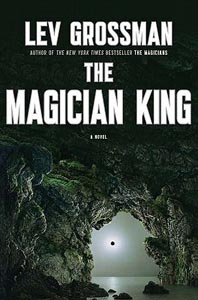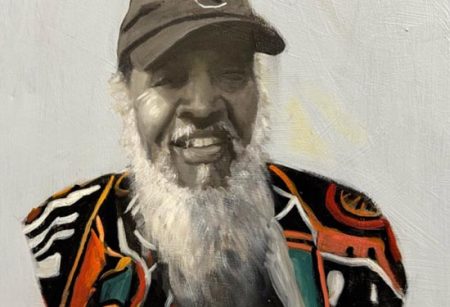Book Bag: October 2011
Reviews by Sharon L. Shervington
The Magician King
Written by Lev Grossman
Over the last decade or so, the genres of science fiction, fantasy, horror, and the like have exploded, shooting outward like a rain of magical stars from relative obscurity into the mainstream of public consciousness.
In movies and books we have the Harry Potter series and His Dark Materials, in television Game of Thrones, and of course the fantastic has been perhaps the primary draw in terms of video games since their early days. Many factors have contributed to that surge, from new generations raised not only on Dahl, Tolkein and C.S. Lewis, but on Andre Norton, Sherri S. Tepper, Robin McKinley, and Octavia Butler.
How interesting then that The Magician King, Lev Grossman’s eagerly-awaited sequel to The Magicians,
is being hailed as evidence that he really is the heir to C.S. Lewis.
Mr. Grossman, book critic and senior writer on technology at Time, has
been quick to recognize other outsize talent such as Suzanne Collins,
author of the Hunger Games trilogy, which recently completed shooting in Asheville. He also is a big fan of books like Jonathan Strange & Mr. Norrell,
a Hugo Award winner that has developed a cult following and which takes
standard tropes of magical fiction and tweaks them to better engage our
21st-century sensibilities.
While comparisons to C.S. Lewis are accolades of which anyone could be
proud, in the case of Mr. Grossman they don’t necessarily reflect the
many inflections of his work (including the lesser-known Codex). One of
the best things about his novels is that they immediately resonate with
readers both in terms of straightforwardly vivid visual pictures
(particularly in terms of his libraries) as well as in the hidden verbal
puzzles and allusions that are the chocolate mousse and the soufflé of
lifelong readers.
The Magician King is structured in a multilayered, sweeping yet
precise style that merges drama, fantasy, science, strong characters,
and adventure. Its ultimate question is “Will magic survive in the
world?” As an avid lifelong reader myself, that question led me to
reread Marion Zimmer Bradley’s epic The Mists of Avalon. In both books the central question is the same, and the theological and religious overtones are powerfully thought provoking.
These are definitely not books for children, and the leading characters
are often unsympathetic and self-absorbed, yet it is the fully adult
flaws of protagonists Quentin and Julia that keep the pages turning—for
these are qualities we all share to one degree or another.
As discerning readers have come to expect from the author, literary
references meld fluidly with laugh-out-loud witticisms and sometimes
flat-out puns. The main characters are mostly genius-level magicians,
classically trained at Brakebills in upstate New York, which appears to
be at the Ivy League level of magical colleges.
In The Magician King, Quentin, our hero, or perhaps anti-hero,
has tired of the luxe life of a king of the magical land Fillory and
hits the ocean road in search of adventure. His timing couldn’t be more
perfect: the quest turns out to be one that will affect all the worlds
of creation that can be reached.
He travels through the Neitherlands (the books’ counterpart to the
Narnia novels’ Wood between the Worlds), which is every bit as exciting
as the original. The luxe real-world settings like Venice and Provence
lend a surprisingly dreamy counterpoint to scenes set in the world of
Fillory—where Quentin is High King and where human teens rule (as was
also the case in The Chronicles of Narnia).
Seven golden keys, the making of a hedge-witch, and a search for ancient
gods and goddesses round out the central deadly quest. This stirring
saga is swashbuckling and ripe with straight-up enchantment. But it also
offers another kind of magic—that is the alchemical transformation that
occurs when these lifelong, disaffected outsiders find family and
community after they have stopped expecting to find it. Whatever their
shortcomings, it is a treasure that Quentin and Julia, to their credit,
ultimately embrace.
The Magician King; by Lev Grossman; Viking; 400 pages
Mothers on Trial; the Battle for Children and Custody
Written by Phyllis Chesler
This important book focuses on how “contemporary judges are biased
against mothers” in custody disputes. Chesler makes a convincing case
based on hundreds of hours of interviews with mothers, fathers, and
family-law experts and other research. She argues convincingly that this
bias often causes children to, at worst, be given to fathers who molest
them, and at a minimum gives custody to fathers who, before a custody
dispute, had no more than minor roles in the childrens’ lives.
This is an updated 25th-anniversary edition, and its solid attribution
and clear writing throughout show that it is a subject that is as
relevant now as when it was first published. The scope of the book is
comprehensive, dealing with how fitness of a good-enough parent is
judged and how the standard is entirely different for mothers and
fathers. She says that a good-enough father is expected to legally
acknowledge and economically support his child, while a mother, to be
good enough, must do everything. She discusses inappropriately cozy
relationships between lawyers, judges and fathers; parental alienation;
the mother-lawyer relationship; court-enabled incest, and much more.
Chesler, for decades a powerhouse voice in the feminist movement, now may be best known for classics like Woman’s Inhumanity to Woman and Women and Madness.
Tackling topics that are often taboo for even the most outspoken
feminists, Chesler connects the dots, showing in a very lucid way that
the personal is political.
One of her most unforgettable pieces is her chronicle of the time she
spent as the young wife of a wealthy scion of an upper-class Afghan
family, and how she almost died in that country. One shudders to think
how her life might have turned out should she have found herself with
child in a setting where she was already ill, trapped, and nearly
powerless.
Another important part of Mothers on Trial gives a breakdown and stories of what women face in terms of custody challenges in more than 20 countries around the world.
Mothers on Trial; the Battle for Children and Custody; by Phyllis Chesler; Lawrence Hill books; $18.95; 488 pages









